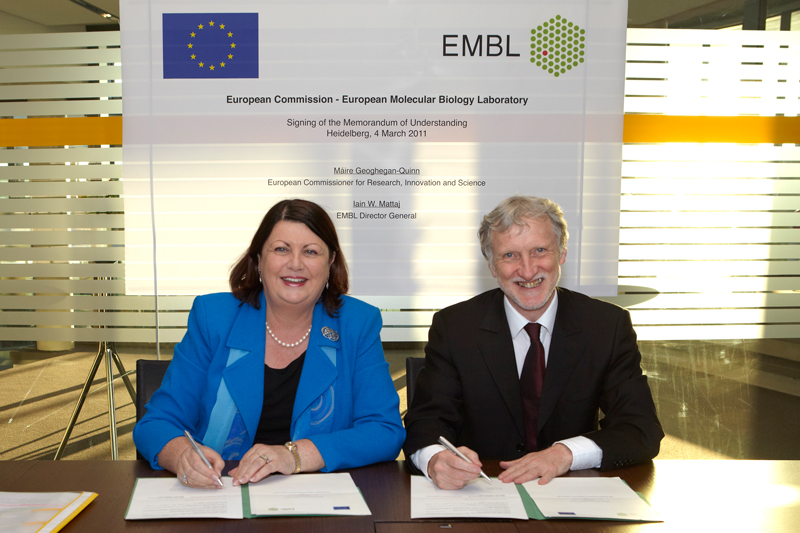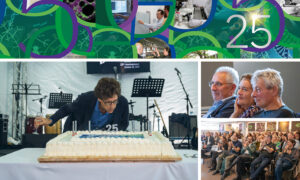European Commission and EMBL renew cooperation
Memorandum of Understanding signed in Heidelberg

In a Memorandum of Understanding signed today, the European Commission (EC) and the European Molecular Biology Laboratory (EMBL) formalise their desire to maintain and further develop their cooperation.
“I am delighted to sign the renewed and strengthened Memorandum of Understanding between the European Commission and the European Molecular Biology Laboratory. I am confident that it will set the stage for even better and more fruitful cooperation between us. EMBL’s excellent research is fundamental to our understanding of life itself and will underpin many of the advances we will see in medicine and other domains in the years to come,” says Máire Geoghegan- Quinn, European Commissioner for Research, Innovation and Science.
In signing this statement, Geoghegan-Quinn and Iain Mattaj, Director General of EMBL, renew their institutions’ commitment to cooperate to further the development of European research in the life sciences. European Commission and EMBL renew cooperation Memorandum of Understanding signed in Heidelberg “As the European intergovernmental institution for molecular life sciences, EMBL has extensive scientific and technical expertise coupled with years of success empowering life scientists from European countries to conduct cutting-edge research at state-of-the art research infrastructures,” Mattaj says. With a contribution of 12.4 million Euro in 2010, the EC is EMBL’s single largest external funding body.
The pledge of mutual consultation and collaboration signed today in Heidelberg, Germany, at EMBL’s main laboratory, reinforces the aims of the 1995 Administrative Agreement between the EC and EMBL, and updates it in keeping with the evolution of the European Commission and the research landscape in Europe over the past 15 years. The two parties pledge to consolidate and further develop the European Research Area, notably in the areas of research programming, training and mobility of researchers, research infrastructures, management of intellectual property and international collaboration.



